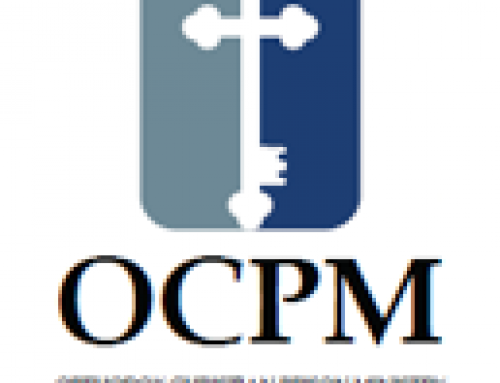This post was originally published on this site
Introduction
This discussion is based on excerpts from a keynote address given by Father Sergei Glagolev in 1986 in the Theology of Lay Ministries Volume I.
Before we begin our discussion, let’s begin with 120 seconds of silence. Take this chance to come into the presence of God and his saints as a group. Sit still. Breathe slowly and deeply. Say the Jesus prayer.
Take a few moments to read this verse and ponder on the words:
“Now there was a dispute among [the apostles] as to which of them should be considered the greatest… ‘But not so among you; on the contrary, he who is greatest among you, let him be like the younger, and he who governs as he who serves… Yet I am among you as the One who serves” (Luke 22:24,26)
Part I: Who is Called?
Reflection
What is the implication, the meaning, the reality of baptism, chrismation, membership in the Church? The definition of church membership is not something that we can read in the statues. It is simply “to serve.” All are called to minister. The people of God are called to minister, not to be ministered to, but to minister.
All are called to serve. It is not a question of the clergy serving the people but rather a call to service for all the people, including the clergy, who make up the Church. When St. Paul speaks about the people of God, the ministry of the people of God, he means everybody who considers himself a member of the Church. In his military terms, he says that if, in the church militant, it is only the clergy who fulfill the function of the ministry of the Church, then it is like fighting a battle with only the generals.
And when it comes to the ministry of the Church, that is precisely where the action is—on the front-lines, in your homes and neighborhoods, at your jobs, in our country. These are the front lines. We cannot do the work of the Church without the troops, the fighters, without those who are trained for service, trained to be of service, trained to be loyal, trained to understand the principles and do something about them, to give their lives and their hearts. This is precisely what St. Paul is talking about and this is the approach to the ministries of the Church that we must take.
Discussion Questions
- How does service as the definition of church membership challenge or enrich your understanding of what it means to belong to the Church?
- In what ways are the “front lines” of ministry found in our homes, neighborhoods, college campuses? How does this concept broaden your understanding of the view that Church ministry is confined to Church buildings and liturgical services?
Part II: To be called a “servant of the Lord”
Reflection
In the sacraments, all Christians are addressed by one word—“servant” and this implies that no one may contract out of rendering service to Christ and His Church. And, how are we known in the Church? Is there a single sacrament in which we are referred to in the abstract? Each and every time, the commitment is personal—Mary, John, Andrew—every name. We are known personally. But are we simply called by name? Always, we are identified as the servant of God, Mary, the servant of God, Andrew, the servant of God, Ann, the servant of God. Are these just vain words, or some sort of wonderful, mystical connection to the glorious Byzantine past? No, indeed! There’s not a single word in the services that we shouldnt take seriously. And, if the priest or bishop refers to us as “the servant of God,” we’d better believe it! That’s what we’re called to be, what we’re called to do- to be the servant of God, to be the servant of the parish, to be the servant of the diocese- the servant of God and specifically, by name. This is what ministries is all about.
Each sacrament implies a beginning in baptism and chrismation, those acts by which we enter into service and join in Christ’s own life, He who came to serve and not to be served. Every new member of the Church comes to be baptized into this life of service. Chrismation is precisely to be enabled by the Holy Spirit Himself to use our hands, eyes, ears, mouth, nose, and feet to serve the church, to extend the ministry of Christ into the world. In each of these sacraments, we are called “the servant of God.”
In communion itself, koinonia, the fellowship and nourishment in which we ourselves partake of the Divine Light in the Precious Body and Blood of Our Lord and God as Savior, Jesus Christ, we are addressed as “the servant of God.” Is this simply for our own spiritual service? Do we think that just because it is spiritual; it cannot be selfish? We receive Christ here in the Holy Gifts precisely so that we can say to our neighbor, even to our enemy, “Jesus in me loves you.” I have no business holding grudges because I have partaken of forgiveness itself, of divinity itself. Now I must serve. I must serve love. I must serve the divine so that what Jesus is by nature I might be by grace.
Discussion Questions
- Father Sergei’s words raise the question of whether spiritual service can become selfish. What do you think of this? What does this mean in the context of the Holy Sacraments and our responsibilities towards others?
- What does it mean to strive to become, by grace (a servant of the Lord), what Jesus is by nature (a servant of the Lord)?
Part III: Teaching, Preaching, & Healing
Reflection
And what was this ministry of Our Lord’s? To teach, to preach, and to heal. If our lives do not teach, preach, heal by our example, then we are no Christians at all! Teaching does not mean “to explain” the way we explain icons. We are called to be icons! Do you realize that if an icon doesn’t teach, preach, or heal, then it isn’t an icon, either? It is the same thing with us. That we are to teach does not mean “to explain” or “to talk about” but rather to be the followers of Christ, to be the doers of Christ. Our preaching is precisely to reflect in ourselves this message of salvation. And healing, St. Peter speaks of love that covers a multitude of sins. Because we have been loved first, we are given this ministry of love by which we are enabled to love others and heal in their loneliness, in their aches and despair.
The prophet Joel says in Chapter 2, “And it shall come to pass afterward (as we live in the fullness of time) that I will pour out my spirit on all flesh; (on all people) your sons and daughters shall prophesy, (will be able to speak, witness, will be able by their example to show that Jesus Chirst is in their midst, that He is risen, that He has filled us, and that we ourselves are now partakers in His victory over sin and death) your old men shall dream dreams, and your young men shall see visions. Even upon the menservants and maidservants in those days, I will pour out my spirit.” (Joel 2:28-29)
This is what witness truly is, not another teaching film. By our witness, yours and mine, people will see how we live, how we behave, what our goals are, what Orthodoxy is all about. So, when someone says “What is Orthodoxy?”, the usual answer, “Well, I’m not sure. You know, it’s the Russian Church but actually it’s the Greek Church, but, then again, we use English”- won’t be necessary. They won’t have to ask questions, if, as Joel suggests, the witness of our lives will show what it should or could be, if we take this business of lay ministries seriously. Then those who are outside the Church will say, “Who are these people that love each other so much? What kind of church do they have that gives them that kind of power, those kinds of priorities in their lives? Look at how they rejoice! Look how happy it makes them!” They won’t see us going around with a sad face saying, “I’m Orthodox, I’m fasting.”
Discussion Questions
- Father Sergei reveals how both academic and ethnic explanations of Orthodoxy can lack the depth and richness of the faith. How can we make our faith visible and understandable to others through our actions rather than explanations?
- How can we contribute to making our Church communities places of love, healing, and joy that attract others to the faith? Start by brainstorming some personal ideas, then develop a few suggestions for your chapter to discuss and plan at the next meeting.
Closing Prayer
Lord, make me an instrument of your peace:
Where there is hatred, let me sow love;
Where there is injury, pardon;
Where there is doubt, faith;
Where there is despair, hope;
Where there is darkness, light;
Where there is sadness, joy.
O divine Master, grant that I may not so much seek
To be consoled as to console,
To be understood as to understand,
To be loved as to love.
For it is in giving that we receive,
It is in pardoning that we are pardoned,
And it is in dying that we are born to eternal life.
Amen.



